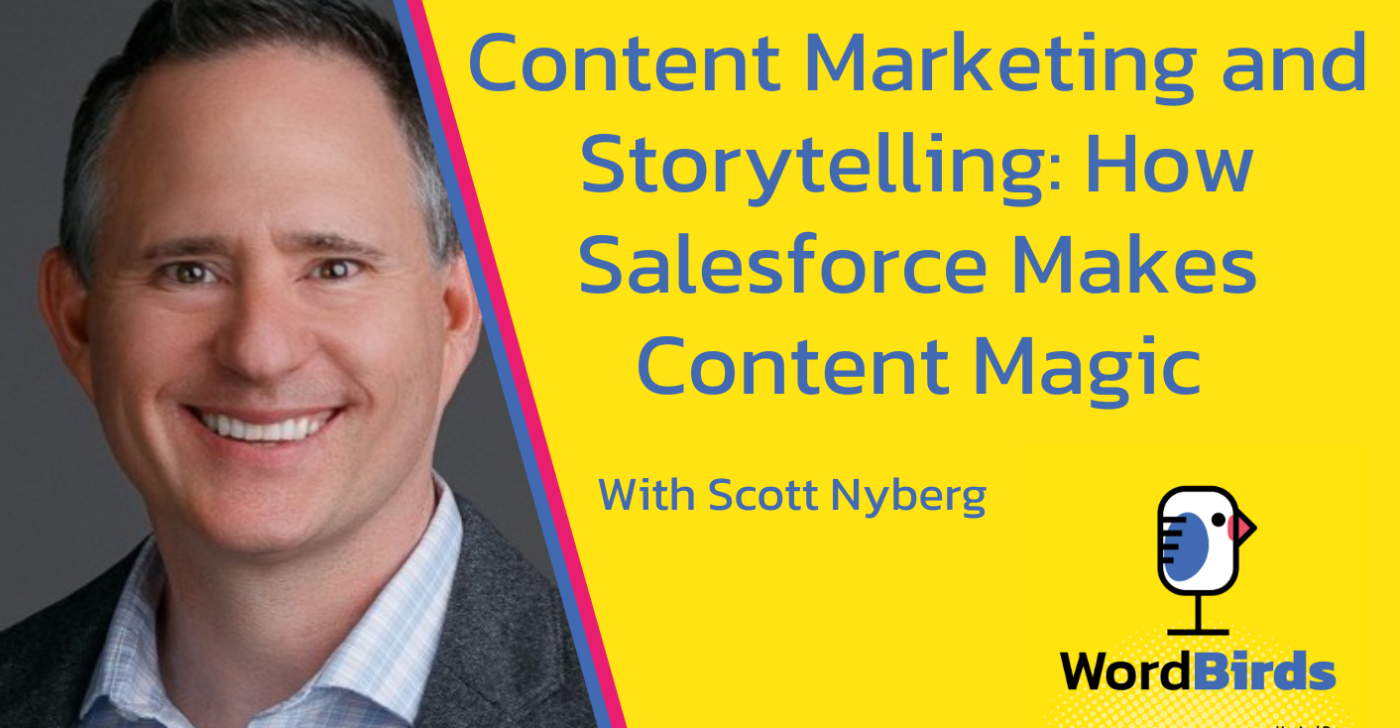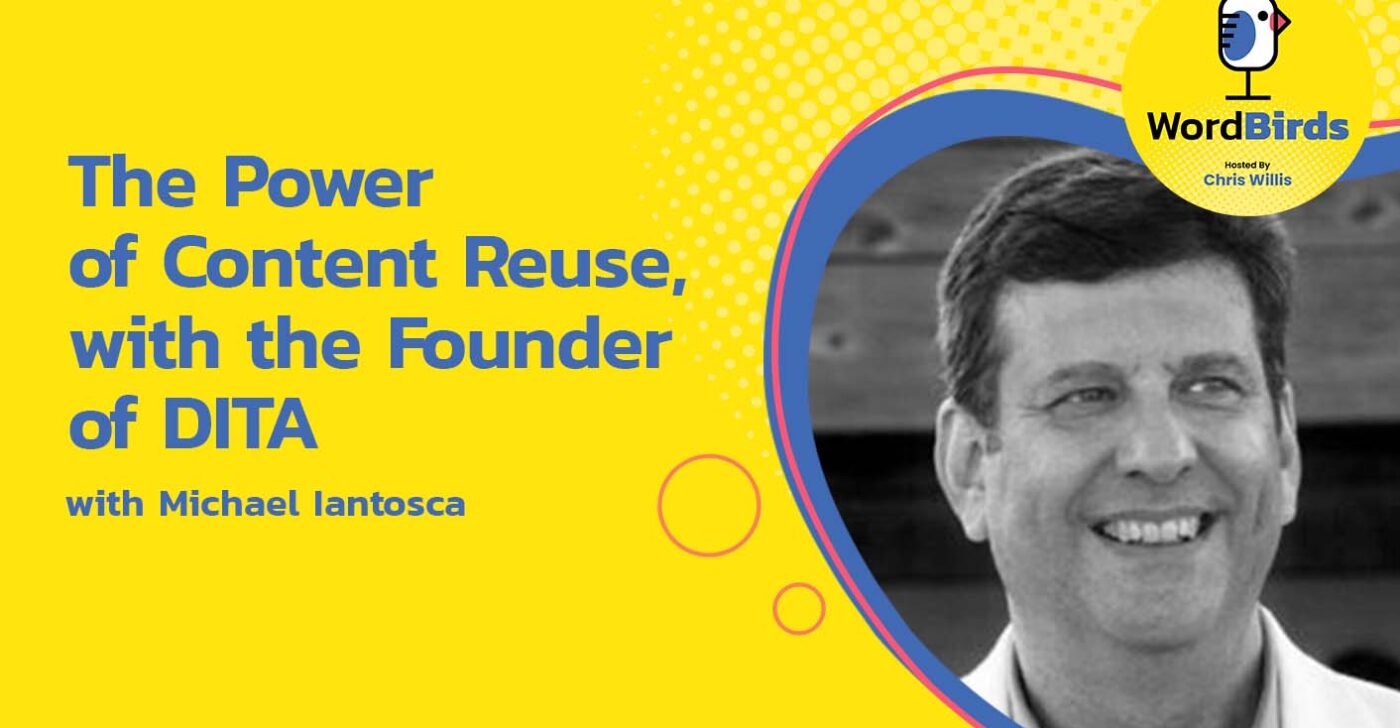Are you tired of your website being hard to find? We live in a world where it’s easier than ever to get lost in the crowd. That’s why we want to help you stand out, so you can find your place in the crowd and start making an impact. And you know what? It’s not just about the design. It’s about the whole strategy behind your online presence!
In this episode, Mordy Oberstein, Head of SEO Branding at Wix, shows you how to build a more findable website. And not only help people find your business, but keep them coming back for more!
Watch the episode here
Listen to the podcast here
Read full episode transcript
Welcome to WordBirds, a birds of a feather conversation among people that care about words. Our guest on this episode is Mordy Oberstein. He’s the Head of SEO Branding at Wix, the website company.
This is an amazing episode. We’re going to talk about how Google looks at your website, profiles that website, and then uses your tone and your words to deliver better results to end users. This episode ends with actionable advice on how you can start now building a more findable website. Let’s sit back and get some insight from the flock.
Mordy, welcome to the show.
Thanks for having me. It’s great to be here.
I’m excited to talk to you. I know one of the things in your role at Wix is dealing with Google. I was reading in the notes that you’ve said that you think that Google is profiling our websites. What do you mean when you say profiling our websites?
On one foot, I think in 2016, Google introduced the first machine learning property into the algorithm. Since then, it has introduced multiple machine-learning properties into the algorithm. What machine learning fundamentally does is profile. It takes input and then it matches it up whether or not this input matches up to where you’re having your website, for example.
Someone once asked Google search advocates, “How would this X, Y, and Z work?” They said, “What we basically do is we look at how content around this topic is spoken about across the web. We feed it into machine learning, and then we understand that for this topic, this is how you generally want to talk about something. We look at your website and we see if it aligns or not.”
That’s done by a profile. For example, and I’ve seen a case like this, you offer information about business loans. Google will say, “For this kind of content, you can be taking out a lot of money. You can ruin your whole financial life. If you screw this up, your business will close. Your wife will divorce you. Your kids will hate you. You want to get this information right. We think that you shouldn’t have a marketing tone in the content here because that’s not appropriate.”
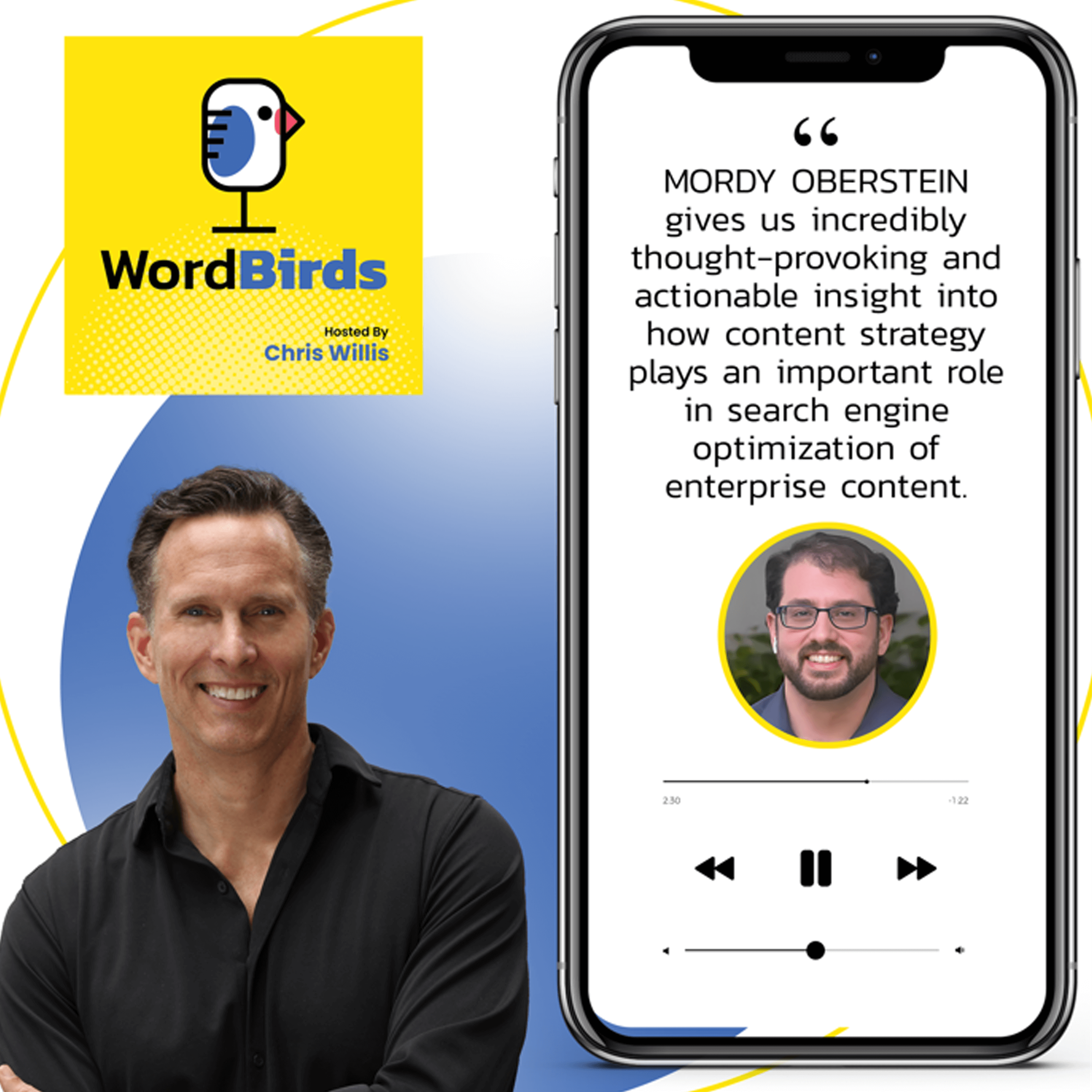
Things like, “This is a great loan. You’ll never regret taking it out.” That’s not the kind of profile that we’re looking for. What Google did back in September of 2019 for a bunch of these websites was say, “You have your content profile. What we think the content profiles should be for this topic matter don’t align.” Your rankings are gone. That’s what I mean by Google’s profile. Google is looking at your website. It’s trying to see who you are, what you are, what you’re talking about, and if that aligns with what they think you should be talking about and how you should be talking about it.
That has ramifications across everything that we create. How deep do they go? You gave an example of loan banking consumer products. What does that mean to a software company? What should I be doing selling B2B software? What does Google think? How does Google think I need to communicate?
It’s a good question because no one really knows. Google isn’t spilling the secret sauce. It’s partially because they don’t know the secret sauce. It’s ever-changing. It’s machine learning. They don’t know exactly what it is.
What you generally see across the web, and you’ll see people like myself who studied these things point out is in the case of a software company, what used to be a lot of the practice from back in the days is you would cast a wide web. You would post your blog and talk about anything under the sun to get the traffic in. Once you got the traffic in, you hook, line and sinker, and you get them to buy your product somehow.
What Google’s doing now is saying, “Why are you doing that? That content doesn’t relate to who you are and what you do.” Worst case, if you have that content, they won’t rank you for any of that. You’ve invested tons of time, effort, and money into creating content to cast this wide net to bring in lots of traffic, and then grab it once they’re on your website. That’s not good. You wasted all that time. Google’s not going to give you that traffic anymore.
The worst-case scenario is that Google will do something if you’re selling widgets but you’re writing about ice skating on the website. This is a far-fetched scenario, but if you look back at what’s going on the web historically, is it that far-fetched? You’ve seen people do all sorts of crazy things trying to bring traffic in. Google will question whether or not you’re legit. Are you trustworthy? Are you authoritative? If you’re talking about topics that don’t relate to what you’re doing or it’s clear you’re just creating low-quality content to bring people to the website, can we trust any of your content — even the good stuff?
Quality is a signal that a lot of people think that Google is a page-by-page thing. Google ranks pages not websites. Quality is one of the things that Google has said isn’t across the board or across the website domain-level analysis. Meaning if you have too much low-quality content, that can impact the other good-quality content that you have.
Let’s personalize this for me. The SEO strategy is to leverage a bigger competitor’s branding through the creation of a blog article or a series of blog articles, discussing that particular company so that when somebody searches for that company, they find our blog. Google is saying, “Irrelevant content. It doesn’t have anything necessarily to do with us. We’re not directing traffic to your blog regardless,” or at least rarely.
Don’t worry about keywords if you're writing good content. When you're writing it well, what other words are you going to use other than keywords? Click To TweetIt’s a relevance play. I created something about somebody else to put on my website to capture their traffic. No matter what I do outside of paying for Google Ads, I’m not getting SEO. I’m not getting traffic. I’m not getting organic search traffic driven on my website as a result of that page because it’s not relevant to me. It’s not part of our message. It’s not part of what we do, and Google’s going to see that.
It all depends on how Google will see it. Will they see it? Are you going to write a whole bunch of articles about the competitor for Google to think, “You should rank number two. You won’t rank number one.” Be it the brand itself. Is that content helpful? Is that content talking about things that help your user base with insightful, helpful, and substantial information? Even if Google is not aware of it yet in that case, is that the kind that Google wants to rank? Clearly not.
If Google understood what you were doing, they would have ranked you. It’s a mistake that content creators make in general. It might be working now in that particular case. Who knows? Probably not that well. Let’s say it’s working well. That’s not what Google wants to rank. At a certain point, Google’s going to figure it out, and now what are you left with?
The importance of writing a message or on-brand aligned to the audience becomes a differentiation from an SEO standpoint. We’ve moved a long way from, “I’m going to add keywords to my metadata and Google will find me.” I need to create clear, concise, and consistent language that’s uses our voice and is on-brand, and then I can start worrying about keywords.
Honestly, I wouldn’t worry about keywords. If you’re writing good content and you’re writing it well, what other words are you going to use other than the keywords?
This is incredibly interesting. My next question is going to be, is this profile a good thing or a bad thing? I think it’s a good thing.
I think it’s a good thing.
For companies that take it seriously and they act on this, it’s a good thing. If you don’t, it’s a bad thing. If you know this going in and you’ve tuned in to this episode like, “My goodness, this is way different than I thought,” it’s creating that set of guidelines when you build your content so that you’re building high-quality content, content that’s aligned to your audience, and content that’s speaking in the voice of your audience. It’s delivering news that’s relevant to your audience as a result of what you’re trying to communicate. That in and of itself starts to create competitive differentiation in the search space.
When you think back to what SEO or what your association was with what SEO was back in the day and what you might think that is now, it’s a very different ballgame. I think it’s a good thing. It’s good for the web overall. You want Google to start thinking about it from a user-first experience as opposed to you wanting Google to know that you have a lot of links. You want Google to know you have a lot of keywords. That’s not good for anybody other than you if you’re doing that well. For the state of the internet or the state of the web, that’s a terrible thing.
Let’s start at the beginning. It’s actionable. How do I start? Let’s say I’m building a brand-new website. At some point, Google needs to understand what the point is, and what I’m selling, offering, and talking about. They’re doing that essentially through the words and the content. They’re then going to try and make sense of who I’m communicating to and who my audience is, and whether I am speaking correctly to that audience.
They want to know who you are and what you do and therefore, understand that they can trust you, they can rely on you, and you’re authoritative. Google doesn’t want a user to go to a website from Google and find it’s not relevant, low quality, possibly malicious, and then bounce back to Google.
For users, when that happens to them, they don’t just blame the website but they also blame Google. Why didn’t you send me there? That’s why quality is a cross-domain metric. If you’re going to one page and it’s a good page, and then you go through the next page and it’s garbage or it’s spam, that also reflects poorly back on Google. It’s like, “Google, what’s this website?” Google wants to make sure that when it recommends a website, which is the result of its recommendation, that they can trust this website.
The way I think about it is if you went to a doctor’s office, you walk in, you go to the receptionist and they say, “Hello, Mordy. What are you here for? Your car insurance or to see the doctor?” I’d be like, “You sell car insurance? What?” I wouldn’t want to go to that doctor. I would be out of there in three seconds. I don’t trust you because you don’t have a strong identity.
Maybe you need car insurance though.
Maybe I do need the car insurance and forget the medical side, but you get what I’m saying. Why would you want to go to a place where clearly they themselves can’t figure out who they are, what they are, and what they’re doing? They’re all over the place. You lose trust when that happens. It’s the same thing with a website. In order for Google to understand who you are and what you’re doing, understanding who you are and what you’re doing means they can trust you. That starts with the very basics. It starts with a very clear homepage.
Who are you? What do you do? What problems do you solve? How do you solve those problems? It’s having an about page. It comes from having a strong topical focus. If you’re an ice-skating rink, talk about ice skates, ice skating, or hockey. Don’t talk about light bulbs. I’m being very extreme in the examples, but you get what I’m saying and it’s not that complicated.
Optimization is still a thing. Do you want to add the keyword to your title tag? Yeah, most things can make a difference. Are they going to make a big difference? No. I’ve seen plenty of websites. I know many websites because I’m working at Wix. I look at many websites. They bring in a lot of trends. One site, in particular, brings in a million users a month from Google.
They don’t have any H1s. They’re going right to the H2. They’re making a mistake. That’s not a strong SEO practice, but the content is good. It’s focused, topical, helpful, and usable. Google ranks it well for super competitive keywords. Does Google care that you don’t have the keyword in the title tag? Not as much as Google cares if you have great content that helps users.
This turns things upside down. Content marketing or digital teams create content. They hand it to SEO, and SEO optimizes it for being found. What I’m hearing here’s the opposite of that. SEO creates guidelines for the creation of consistent content across the organization. The people that create findability are content marketing and digital. It’s not like, “Here, go make this be found.” It’s, “Here, go create this. If you create this way, good things will happen.”
From the content strategy point of view, absolutely. Are there still things around sending signals to Google around canonicalization that are given to linking practices and duplicate content? There are all sorts of signals that you can be creating or send to Google that you don’t want to send. There could be technical issues with your website. Speed does factor in certain cases. If you’re a news website like CNN versus CBS where the content is very similar, and one website is super slow and one website is super-fast, those things play in.
That’s very rare. The speed case is a very bad example. It’s a tiebreaker and a very significant but offbeat case in my opinion. There are technical foundational things that do fall into SEO, but from a content point of view, absolutely. If someone is telling you, “I’m going to come in. I’m going to work with your content team and I’m going to SEO,” and they’re all about optimizing keywords on the page, there’s not a lot of value there in my opinion.
I have an agency I need to talk to.
What they should be doing is helping you understand the ecosystem. What’s happening on Google? What’s working and what’s not working? Where are the opportunities and how do you get those opportunities? A lot of this stuff is good for most websites because the better Google is understanding websites and content, the better it is for smaller websites.
Back in the day, if you were the Wall Street Journal, Walmart, or one of those ginormous websites and you were getting tons of links, and when Google is focused on links, those websites were killing it because they’re getting all the links. When it becomes about content and the quality of content, and topical focus and expertise, that opens the door for all sorts of websites. You don’t have to be at Walmart. You don’t have to have tons of links anymore. You have to have good stuff. All links still matter. Google still looks at links. I’m not saying no, but from a theoretical point of view, you want Google to be focused on content and understanding content because it opens doors for you.
If I run marketing at a software company and I’m tuning in to this episode, what do I need to do to rethink our approach to let’s say our website but our content, in general, to appear more relevant to Google? From starting brand new, what do I need to do to implement a plan like you’re running here?
Back in the day, if I would answer you, you take your keywords and throw them into an SEO tool and you use their keyword research and competitor analysis, and get a whole list of keywords and you create content for that.
I know how to do that.
That’s the best. You export a whole list of things. You write a blog post and reach one of those keywords. Amazing. I would start as a marketer. To me, it sounds so simple, but from an SEO point of view who is not used to thinking like this, I always start as a marketer would. It’s understanding my audience and empathizing with them.
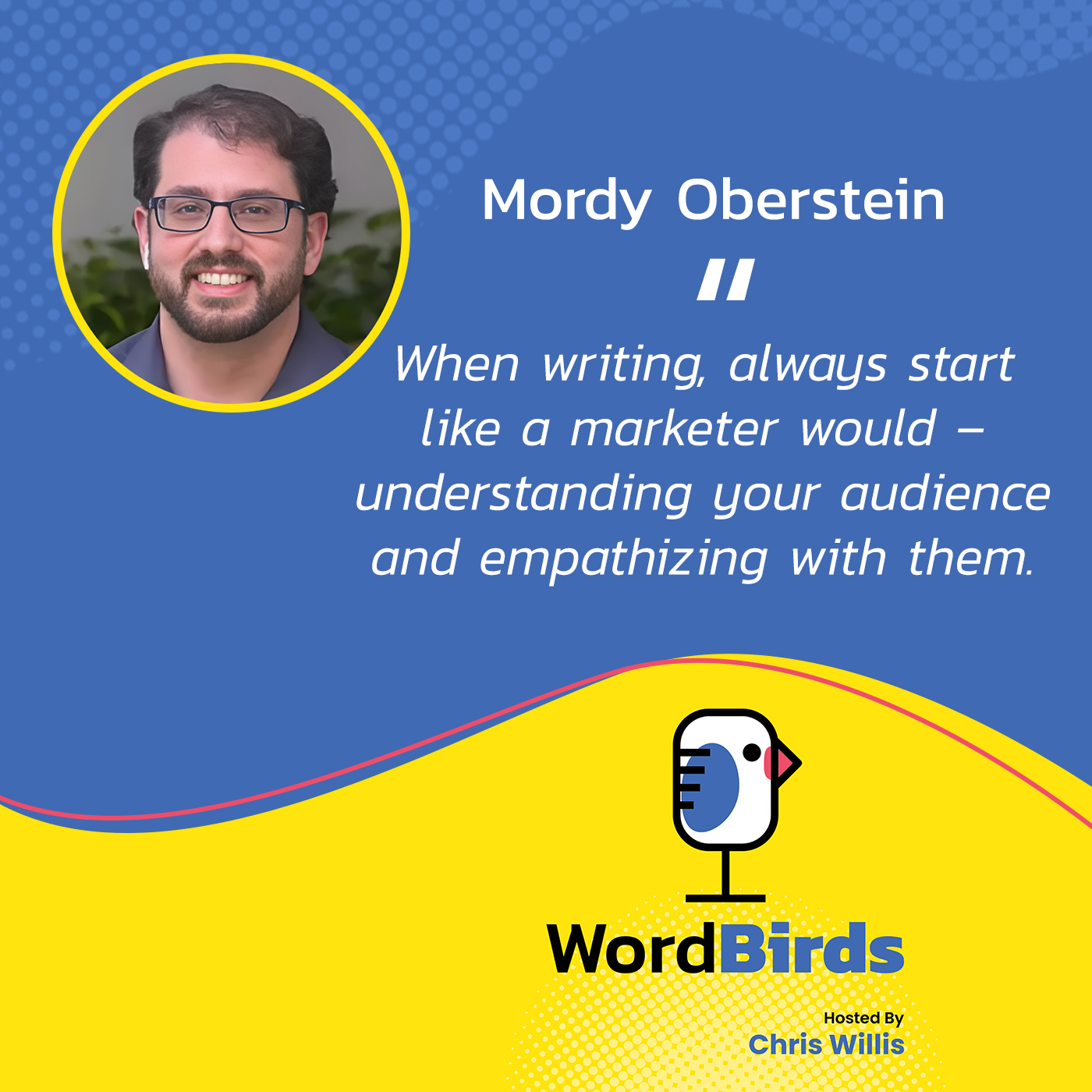
What are the problems that they have? What’s their life context? What’s their life situation? What are the problems that they’re going to have? What are the needs that they’re going to have? As a content creator, this is how I think of it personally. When they get to the page, what problems are they going to have with this web page? Meaning, what do I need to explain better?
I’m an old teacher, so I used to do this when I used a lesson plan. Lesson plans are a lesson for kids. You teach the fourth grade. You have kids who get it, kids who don’t get it, kids who are behind, and kids who have reading problems. How do you prevent those problems from happening in the lesson beforehand?
Whether you show a video over here to the kids first, now they have some background information, then you do the next thing. It makes a lot of sense. It’s the same thing when you’re writing content. You’re empathizing with your audience, and then you’re worrying about predicting what their needs are going to be, and what problems they are going to have. Maybe I need to add a link over here to accent the information for those who don’t fully get the point that I’m trying to make.
Google could theoretically look at it and say, “That makes sense that they linked here, and they’re linking to a great website. Great. Good job.” That does count towards SEO. What you link out to counts like things that you get linked to. If you’re linking out to good and reputable sources at the appropriate times, Google looks favorably on that. Leaving that aside for a second, you want to think about what are the problems they’re going to have and try to solve those problems.
That could be they got to this page, they have the information that they need, but now they’re going to have a new problem. Now that they know this, they’re going to have a next problem. Make sure I have that content too. Make sure I put that content in a place where they know that it’s there and they can access it.
If you could do that, you’re going to naturally create a cluster of content or a library of content that deals with a particular topic in a way that is layered, multifaceted, multi-step, and it’s pretty comprehensive. It’s doing it in a way where it aligns with what users need, and that’s important. I’ll give you a really quick case. I know I’m rambling on at this point. There was a keyword I was looking for.
Google swapped out the URL, meaning there was a URL for one website that was ranking well. Google killed that URL that was ranking and picked another one from the same website instead. What’s going on here? It had to be about washing your hands. It has to be totally random. I know it’s a weird keyword, but the keyword is like a guide to washing your hands. I started researching and diving into it. Almost all of the top results, when they talk about washing your hands, also talk about hand sanitizers, and when you should or shouldn’t use them.
When you go to page two of the results, it gets a little spotty. Some pages do talk about it and some pages don’t talk about it. What I think is going on is that profiling thing. Google is looking at the topic of washing your hands and saying, “When you talk about washing your hands and how to do it, you need to talk about hand sanitizer.” That’s one of the topics you need to talk about. If you don’t, I’m not saying you won’t rank, but it’ll count against you. If you look at the content of your website as a whole, it’s a similar thing. You need to have all of the various topics and sub-topics that Google thinks you should be covering. The only way to do that is to think about your users, their journey, and their needs.
Real-life example. When I joined the company that I work for now, for many years, the company talked about content quality. I have a lot of opinions. I feel like quality is a subjective term. It doesn’t mean anything. I talked about content alignment. What I’m hearing here is Google says, “Cool, content alignment,” but in order for that to become an important topic, it needs to include the concept of content quality.
You can’t just eliminate the thing because you don’t think it’s interesting. It’s part of the answer. If you don’t explain your stance on content quality, the fact that you made up the idea of content alignment isn’t necessarily the full answer so we’ll go find it somewhere else. I wish I knew that four and a half years ago. It could have been helpful.
Don’t we all?
This is super actionable. This is something that content strategists at the enterprise level need to be thinking of. They’re not necessarily involved in what would be considered the SEO function of their business. You’re saying the opposite of that. You’re saying that they are absolutely part of the SEO process because your content strategy needs to include all of this or else findability doesn’t exist.
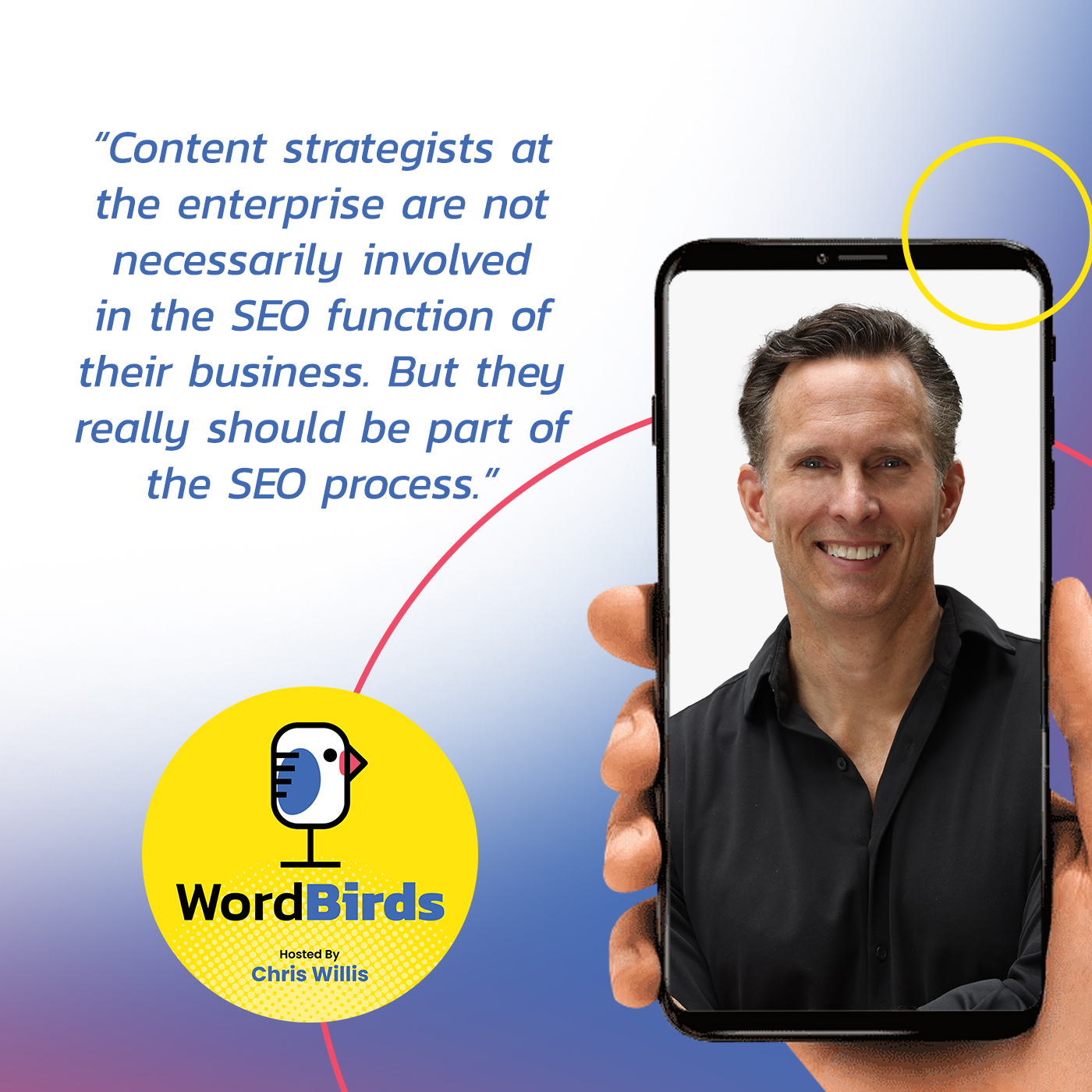
At the end of the day, whatever it is, the content on the website is the commodity that people are looking for. Whether or not the site is fast or whether or not the site has the keyword in the title or the keyword in the title tag, that’s not the commodity that people are looking for. They’re looking for content. Google knows that they’re looking for good content. Good content should drive everything. It drives everything. I do a lot of branding and good content drives branding. I know brand campaigns are cool. They need to be fun and exciting. To me, good branding means consistent, well-received, on-target messaging.
That’s as simple or as basic as having the tone of your content on your website match your audience. It comes off the right way that is well received. They decided it’s well organized and well structured. All of that to me is more important in branding than having a cool campaign like your Coca-Cola with a bunch of kids on the beach drinking a Coke.
I need people tuning in right now who know what I do for a living to understand that I did not know these were the answers. I am very happy that these are the answers because that’s what I do. Our software drives that alignment. It’s clarity, consistency, tone of voice, terminology, inclusion, accessibility, and emotion of content.
Good branding means consistent well received on-target messaging. Click To TweetFor many years, we have looked at findability as part of what we do. We’ve prompted people to add language to their content and to be able to be found. The message that I’m hearing is that the first part of this is the thing that we do. It’s creating that consistency across your content so that you sound like your audience wants you to sound. If you’re off that consistency and your voice is wrong, Google cares about that. That’s what I’m hearing you say. We’re going to need a part two of this. Do you run an agency on the side?
I wish I had the time to.
Maybe you should. Mordy, if people want to find you or if I want to find you to continue this conversation, what’s the easiest way to get in touch?
Definitely not on TikTok. I’m on LinkedIn and on Twitter, @MordyOberstein.
Mordy, thanks for being on the show. This is incredibly thought-provoking and very actionable. I’m very excited to go back and have conversations with the agencies that I work with and the people on my team. I think that’s going to be the general consensus from the audience. Thank you very much for being on the show. I look forward to getting you back here.
It’s my pleasure. I look forward to it.
Thanks very much.
Important Links
- Mordy Oberstein
- Wix
- LinkedIn – Mordy Oberstein
- @MordyOberstein – Twitter
- WordBirds – LinkedIn
- WordBirds – Home page
About Mordy Oberstein
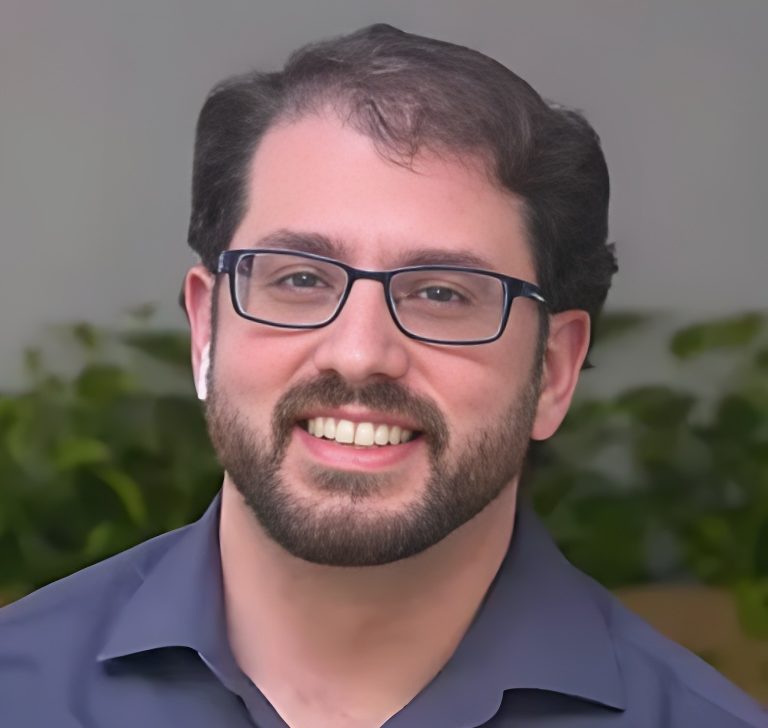
Mordy is the Head of SEO Branding at Wix. Concurrently he also serves as a communications advisor for Semrush. Dedicated to SEO education, Mordy is one of the organizers of #SEOchat, the host of the SEO Rant Podcast, co-Host of Edge of the Web, and a popular industry author and speaker.

